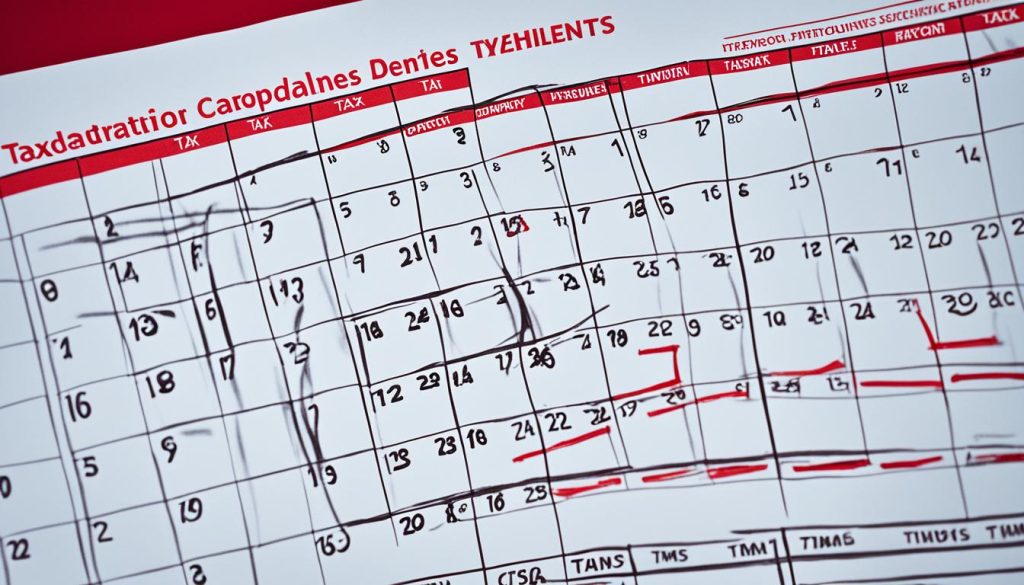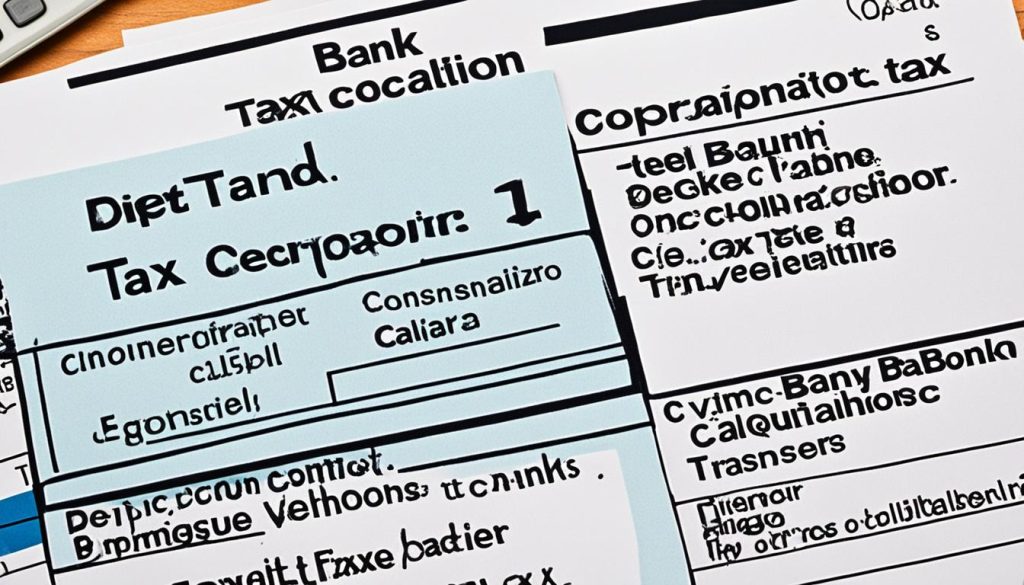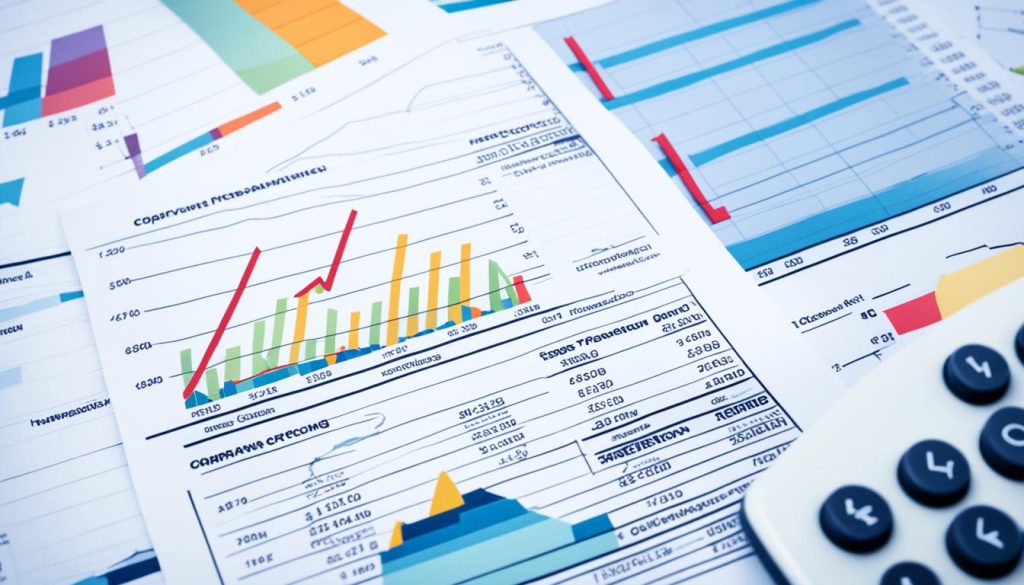Paying corporation tax is a legal requirement for limited companies in the UK. It is essential to understand the process and deadlines to avoid any penalties. In this guide, we will provide a simple overview of how to pay corporation tax in the UK.
First and foremost, it is crucial to determine your corporation tax payment deadline. The deadline depends on your taxable profits. For taxable profits of up to £1.5 million, the deadline is 9 months and 1 day after the end of your accounting period. If your profits exceed £1.5 million, you must pay in instalments.
To pay corporation tax, you have various options available. These include direct debit, online or telephone bank transfer, debit or credit card payment, and payment at your bank or building society. However, it is important to ensure that you pay HM Revenue and Customs (HMRC) by the deadline to avoid any interest charges.
In the following sections, we will provide more detailed information on paying corporation tax on time, methods of payment, paying online, paying by phone, and the possibility of a payment plan. By understanding these processes, you can navigate the payment of your corporation tax smoothly and efficiently.
How to Pay Corporation Tax?
To ensure compliance with HMRC regulations, it is important to pay your corporation tax on time. The payment deadlines vary depending on the size of your taxable profits. For profits up to £1.5 million, the deadline is 9 months and 1 day after the end of your accounting period. If your profits exceed £1.5 million, you must pay in instalments.
To avoid interest charges and penalties, follow these steps to pay your corporation tax on time:
- Set up a direct debit: One option is to set up a direct debit with HMRC. This allows for automatic payments to be deducted from your bank account on the payment deadline. It ensures timely payments without the need for manual intervention.
- Make an online or telephone bank transfer: Another method is to make an online or telephone bank transfer using the Faster Payments service. This allows you to transfer the funds directly from your bank account to HMRC.
- Pay by debit or credit card: HMRC also accepts debit or credit card payments. You can make the payment online or over the phone using your preferred card.
It is advisable to familiarize yourself with the specific rules and deadlines applicable to your taxable profits. By paying your corporation tax on time, you can avoid unnecessary charges and penalties from HMRC.

Methods of Paying Corporation Tax
When it comes to paying your corporation tax, you have several options available. The method you choose depends on your preferences and the time you have before the payment deadline.
1. Online or Telephone Bank Transfer
One of the most convenient ways to pay your corporation tax is through an online or telephone bank transfer. You can use payment methods such as Faster Payments, CHAPS, or Bacs to transfer the funds directly from your bank account to HM Revenue and Customs (HMRC). This method allows for a quick and secure transaction.
2. Debit or Corporate Credit Card
If you prefer to pay with a card, you have the option to make online payments using a debit or corporate credit card. This method offers ease of use and allows you to complete the payment quickly and securely.
3. Direct Debit
If you have set up a Direct Debit arrangement with HMRC in the past, you can use this option to pay your corporation tax. Direct Debit ensures that your payment is taken automatically on the due date, providing a hassle-free way to meet your tax obligations.
4. Pay at Your Bank or Building Society
Another payment option is to visit your bank or building society in person and make the payment there. This method may be suitable if you prefer a face-to-face transaction or if you have limited access to online banking facilities.
Please note that payments cannot be made by post. It is important to explore the available options and choose the one that best suits your needs for timely and efficient corporation tax payment.

| Payment Method | Advantages | Disadvantages |
|---|---|---|
| Online or Telephone Bank Transfer | Quick and secure | Requires online banking or telephone banking access |
| Debit or Corporate Credit Card | Convenient and easy | May have transaction fees |
| Direct Debit | Hassle-free automatic payment | Requires previous setup with HMRC |
| Pay at Your Bank or Building Society | Face-to-face transaction | May require physical visit and limited banking hours |
Paying Corporation Tax Online
Paying corporation tax online provides convenience and efficiency. You can make secure online payments through HMRC’s website by logging into your HMRC online account. To make a successful payment, you will need your unique corporation tax payment reference number, which is specific to each accounting period. This number can be found on your “notice to deliver your tax return” or on any reminders from HMRC. It is essential to ensure that you use the correct reference number to avoid any payment delays.
Paying Corporation Tax by Phone
If you prefer to pay your corporation tax by phone, you’ll be pleased to know that HMRC offers the Faster Payments service for this purpose. By utilizing this service, you can conveniently make your tax payment over the phone, saving you time and effort.
To pay corporation tax by phone, you’ll need to have the HMRC corporation tax bank details at hand. These details include the sort code and account number specific to the payment location, whether it’s HMRC Cumbernauld or HMRC Shipley.
Additionally, while making the payment, it’s crucial to provide your 17-character corporation tax payment reference number. This unique reference number is assigned for each accounting period and ensures that your payment is correctly allocated. You can find this payment reference number on your “notice to deliver your tax return” or on any reminders received from HMRC.
Remember, if you’ve previously made a bank transfer to HMRC and saved them as a payee, it’s important to verify and update the reference number to avoid any potential payment discrepancies.

Corporation Tax Payment Plan
If you face financial difficulties and are unable to pay your corporation tax in full by the deadline, it may be possible to arrange a payment plan with HMRC. A payment plan allows you to spread the payment over a longer period of time.
To set up a payment plan, you can contact HMRC directly to discuss your situation and agree on suitable arrangements. It is important to communicate with HMRC as early as possible to avoid any potential penalties or charges.
When requesting a payment plan, provide HMRC with your financial details and a clear explanation of why you are unable to pay the full amount by the deadline. HMRC will then assess your situation and work with you to determine a payment plan that suits your circumstances.
It’s essential to honor your payment plan and make regular, agreed-upon payments to avoid any further penalties or consequences. Keep in mind that late or missed payments could result in interest charges or additional fees.
By proactively addressing your financial difficulties and working with HMRC to establish a payment plan, you can meet your corporation tax obligations while managing your cash flow effectively.

Advantages of a Corporation Tax Payment Plan
- Flexible payment options tailored to your financial situation
- Ability to spread payments over an extended period of time
- Reduced immediate financial burden
- Potential avoidance of penalties and charges
- Opportunity to manage cash flow more effectively
Considerations for a Corporation Tax Payment Plan
- Early communication with HMRC to discuss your financial difficulties
- Provide accurate financial information and a clear explanation of your situation
- Compliance with the determined payment plan
- Timely and regular payments as agreed upon
- Avoidance of further financial difficulties through careful budgeting and financial management
Conclusion
Paying corporation tax is a necessary responsibility for limited companies in the UK. By following the guidelines provided by HMRC and understanding the different payment methods, you can ensure that you pay your corporation tax on time and avoid any penalties.
It is crucial to keep track of your accounting period, calculate your taxable profits, and make the necessary arrangements to meet the payment deadlines. Remember to use the correct reference number for each accounting period and explore any available options for payment plans if needed. By adhering to these guidelines, you can fulfill your obligation of paying corporation tax efficiently and effectively.
FAQs
When is the deadline for paying corporation tax?
The deadline for paying corporation tax depends on the size of your taxable profits. For profits up to £1.5 million, the deadline is 9 months and 1 day after the end of your accounting period. For profits over £1.5 million, you must pay in instalments.
Can I pay corporation tax by phone?
Yes, you can pay corporation tax by phone using the Faster Payments service. You will need the HMRC corporation tax bank details and your 17-character corporation tax payment reference number for the relevant accounting period.
What do I do if I can’t pay my corporation tax in full?
If you are unable to pay your corporation tax in full by the deadline, you may be able to arrange a payment plan with HMRC. Contact HMRC directly to discuss your situation and agree on suitable arrangements.
How important is it to pay corporation tax on time?
It is crucial to pay corporation tax on time to avoid interest charges from HMRC. Failure to meet the payment deadlines may result in penalties and charges.
Can I make corporation tax payments by post?
No, payments cannot be made by post. You must use one of the available online or telephone payment methods, bank transfer, or pay at your bank or building society.





